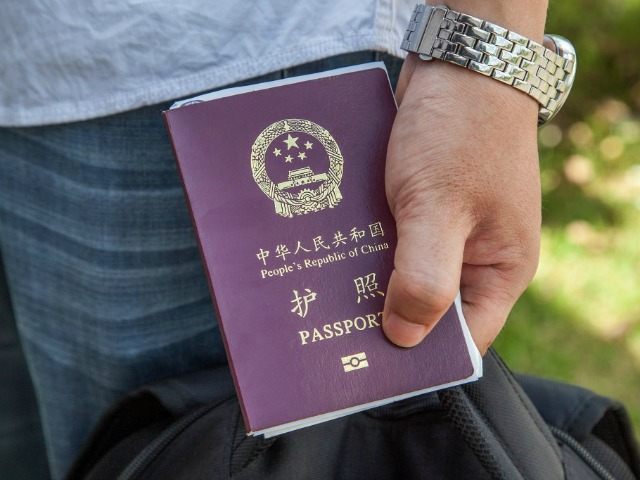China’s state-run Global Times newspaper ran an article this week announcing that citizens of its western, largely Muslim, province of Xinjiang were required to hand over their passports. The news went around the world before the Times apparently deleted the article and published a correction claiming the ordinance only affects citizens “suspected of having links to terrorism.”
“Anyone who needs the passport must apply to the police station,” the original Global Times article quoted an anonymous law enforcement official as saying, according to Al Jazeera. The report allegedly served to highlight a policy announced in Shihezi, Xinjiang, in October. The city demanded all citizens hand over their passports for an “annual check,” and those seeking to leave the country would now require special permission to have their passports temporarily returned, according to CNN.
The URL to the Global Times article in question, however, now only leads to a 404 page, indicating the article was deleted.
The text of the article lives on in a screen capture at Archive.org, however. Xinjiang, the article read, was “requiring all residents to hand in their passports to local police stations for examination and management.” The article did note that the Shihezi announcement online was deleted, and cited only local residents as witnesses who had received calls from authorities demanding they hand their passports in.
The Global Times article still accessible on the page, published on Friday, tells a different story. “Sources from Xinjiang police denied that the government is holding ordinary citizens’ passports, noting that the government only holds passports of those who are suspected of having links to terrorism,” the article begins. It cites “a source from Urumqi,” the regional capital, as confirming that “local police are not holding residents’ passports except for those with suspicious connections.” The article provides no estimates as to how many people this might affect.
“The source in Urumqi said that some local governments in Xinjiang may have misunderstood the passport management policy,” it adds, suggesting that some Communist Party officials at the local level may have acted without permission to crack down on residents’ travel.
The passport announcement is not the first of its kind in the region, however. Last year, the NGO Human Rights Watch condemned the Chinese government for reportedly developing “a two-tiered passport system designed to prevent the nation’s Tibetans and ethnic Uyghur population from leaving the country.” The NGO reported that, while the government was not confiscating passports, acquiring a passport as an ethnic minority was near impossible.
Beijing has dedicated significant effort in the past five years to curbing the freedoms of Xinjiang’s majority Uighur population, who are largely Muslim and whose state is home to a major separatist movement, the East Turkestan Islamic Movement (ETIM). China claims the ETIM has fed into the Islamic State, while ISIS itself has advertised some success in recruiting among Uighurs.
While the Chinese Communist government has paid for Muslim members of the central-Chinese Hui ethnic minority to go on the annual hajj to Mecca, it has cracked down on the religious freedom of Uighurs, banning the public practice of Islam in state-owned entities, including observing the Ramadan fast. Chinese officials have also banned the burqa in Urumqi and forced shops to sell alcohol and cigarettes, both banned by the religion, in an attempt to dilute observance of sharia law.
Chinese officials have also imposed milder attempts to erode Islamic culture, such as promoting miscegenation between Uighurs and ethnic Han Chinese and announcing a “year of ethnic unity progress” in the region.
Lost in the Global Times’ coverage of the passport confiscations is the announcement of a new policy requiring citizens to “report religious activity” to authorities. The ordinance forces individuals to “report their religious activities or activities attended by religious people, including circumcision, weddings and funerals,” allegedly to help the government “assist with the residents’ religious practices.”

COMMENTS
Please let us know if you're having issues with commenting.